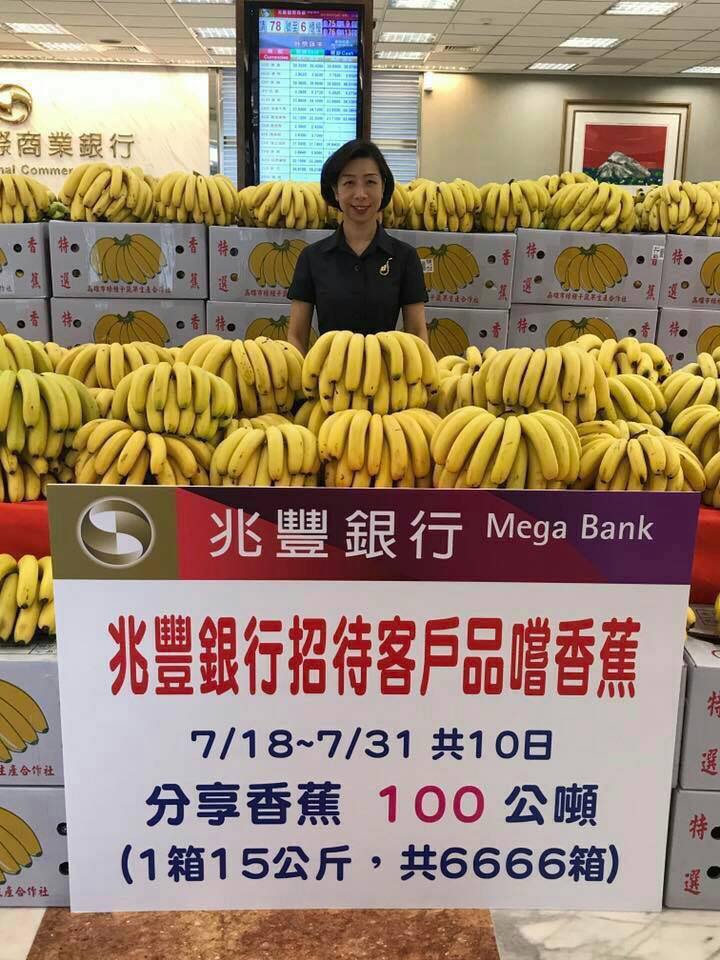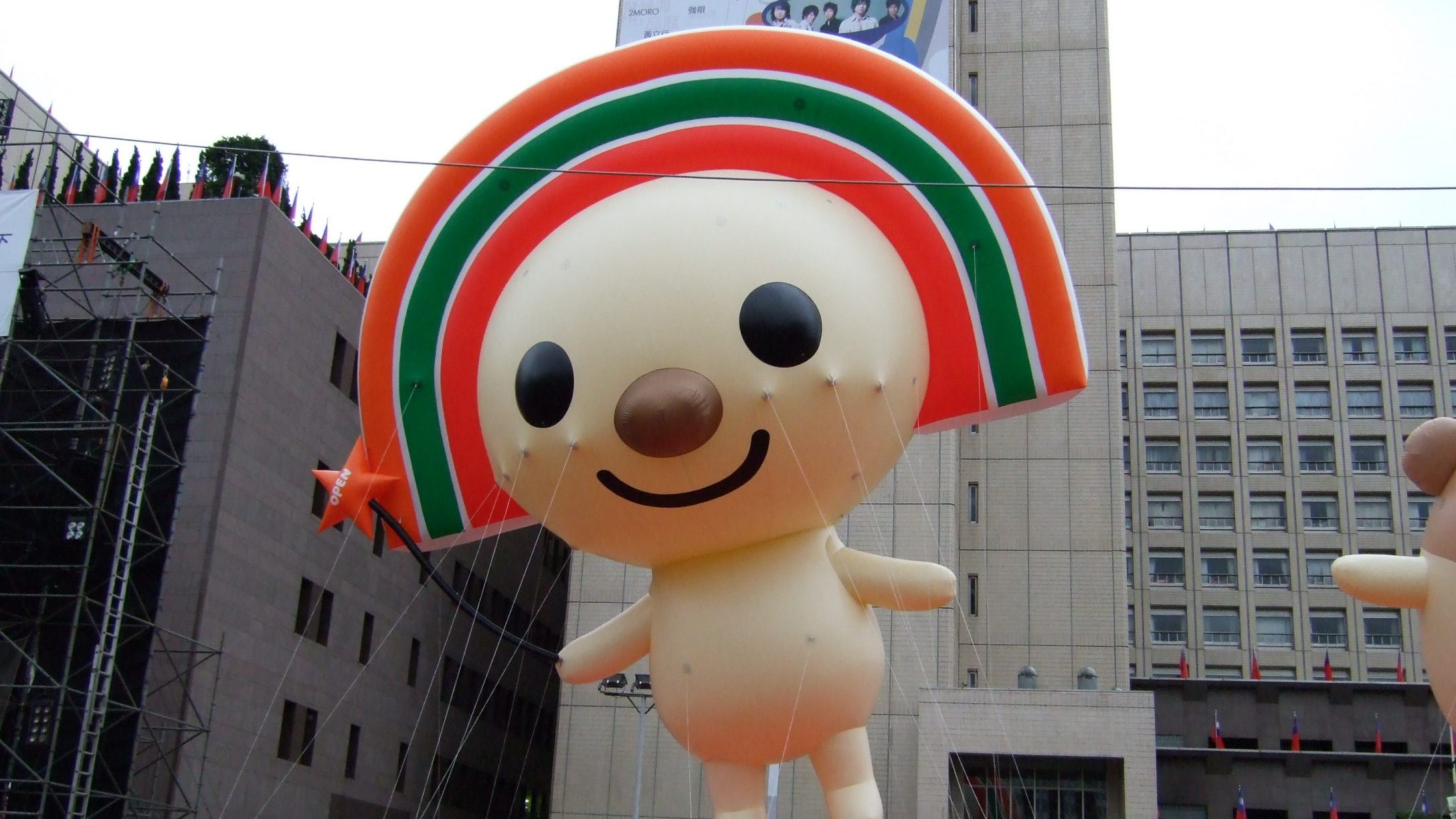I like to count the skyscrapers in the Taipei skyline and see how many of them are owned by banks. Of the ten tallest buildings in Taipei, five—the Cathay Landmark, the Farglory Financial Center, Far Eastern Plaza Tower 1, Far Eastern Plaza Tower 2, and Hua Nan Bank Headquarters—are the headquarters of banks, or conglomerates that own banks, evidence of the oversized role finance plays in life in Taiwan.
Most people in Taiwan use local banks, which are not too well known outside the country. The Taiwanese domestic banking sector is, in fact, overcrowded. However, because of their ties to powerful conglomerates, certain banks have come to dominate.
Take the simple act of withdrawing money from an ATM. Taiwan had the highest density of ATMs in the world in 2018. There are 28,451 total ATMs on an island with a population of 23 million people, or one ATM for every 826 residents; this is a by-product of the high density of convenience stores in Taiwan. In 2018, Taiwan had the second-largest density of convenience stores in the world, second only to South Korea.
China Trust Bank, with 5,680 ATM machines, has close relations with the Uni-President Conglomerate, which owns 7/11, by a wide margin the country’s dominant convenience store. Cathay United Bank comes in second with around 3,800 machines, then Chunghwa Post with 3,206 machines, and Taishin International with 3,180. Cathay United Bank and Taishin International ATMs are found in Taiwan’s second-largest convenience store, Family Mart.
Cathay United Bank ATMs are found in most of Taipei’s MRT transit stations. The MRT is owned by the city government, but the Easycard Corporation, which operates the electronic metro pass system, is jointly owned by the Taipei city government, Taipei Rapid Transit Corporation, 12 Taipei-based bus operators, MiTAC INC., Mercuries Data Systems Ltd., China Engineering Consultants Inc., and Sanmen Technology, and four banks: Cathay United Commercial Bank, Taishin International Bank, CTBC Bank, and Taipei Fubon Commercial Bank.
No surprise then, that one sees frequent promotions between these banks and Easycard, or between banks and 7/11 or Family Mart, broadcast ubiquitously. That powerful conglomerates own not only banks, but convenience stores, supermarkets, construction companies, insurance companies, job banks, and even semi-privatized aspects of public infrastructure is evidence of a deep corporatism that guides the patterns of economic consumption in Taiwan. And yet this is invisible to most members of society, who fail to realize how much power is in the hands of a small combination of economic interests.
Conglomerates influence policy through their stranglehold on everything from banking, product distribution, and convenience stores to supermarkets and the construction of infrastructure. They own not only banks, but also Taiwan’s major media outlets, which report on financial and political news. For example, the most widely circulated newspaper in Taiwan, the Liberty Times, was founded by Lin Rong-san, also the founder of the Union Bank of Taiwan.
The state owned the banks during Taiwan’s authoritarian period, but they were mostly privatized following the country’s democratic transition. Yet in many cases the democratization was in name only, with banks being ostensibly private but actually majority-owned by the Taiwanese government. A number of banking scandals resulted, with a small set of unaccountable bureaucrats lording it over the banking industry, sometimes embezzling money or engaging in insider trading. But as insiders moving frequently between the private and public sectors, they often have friends in high places in government getting them off. The most recent such scandal was the 2016 Mega Bank scandal, which is still unresolved despite hundreds of millions lost, and in which all indications so far are that the responsible parties may yet get off easy.
Sometimes these powerful conglomerates originated out of individuals or families with ties to the KMT authoritarian government, benefiting from the party-state, which in return for their political loyalty let families rule over vast tracts of Taiwanese industry. Several such conglomerates still demonstrate their enormous influence over Taiwanese society.
Particularly because the West frequently contrasted the “free,” “democratic,” and “capitalist” Taiwan with the centrally planned economy of Communist China during the Cold War (never mind that such claims were advanced by the western “Free World” about Taiwan during the longest period of martial law in history under KMT rule, a record only broken in 2011 by Syria), Taiwan is perceived as a bastion of free market that China is not, as one of the “Four East Asian Tigers” that proved the merits of capitalism with Asian characteristics. But there is actually much more in common between Taiwan and China regarding the strong role of the state, or partially state-owned enterprises, than many realize—as is also true of the Four East Asian Tigers more broadly, in all of which the state played a large role in economic development, despite claims of unfettered free-market success.
 BRIAN HIOE
BRIAN HIOEStill, it doesn’t look like the public is about to revolt anytime soon. In 2017, Mega Bank began a promotion to offer free bananas to visitors to the bank. The massive influx of customers demanding free bananas amounted to a run on the bank, forcing Mega Bank to order over 100 tons of bananas amid demands that the bank begin issuing I.O.U.s to those owed bananas. This was later termed the “banana rebellion”. That’s about the closest we’ve gotten to a revolt so far.





